Brian James Gang - Interview Part 1
by John Clarkson
published: 23 / 3 / 2007
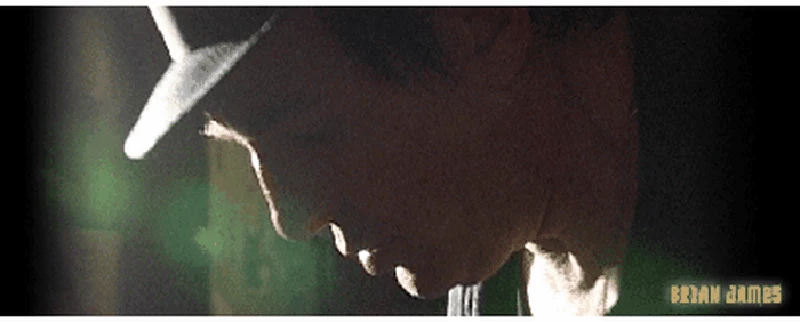
intro
Brian James, the founder and one-time leader of the Damned, has returned with a new group the Brian James Gang and his first album in 12 years. In the first part of an extensive three part interview he speaks to John Clarkson about his time with the legendary punks
The founder and the one-time leader of the Damned, guitarist Brian James was the writer of the first British punk single to be released, 'New Rose', and also the first album, 'Damned Damned Damned'. A few years older than most of his punk contemporaries, James, who was born in 1950 as Brian Robertson, however, began his professional musical career before that playing with the hard-hitting Bastard, and had spent a year and a half living and working with them in Brussels after they had found themselves unable to get gigs in Britain because of their controversial nature. Upon his return to Britain in 1975, he was the only other semi-permanent member in the London SS, a short-lived proto-punk band formed by the Clash's Mick Jones and Generation X's Tony James, who, while never playing a gig or putting out a record, infamously saw pass through their ranks in a lengthy series of auditions many of the future stars of the punk scene including the Clash's Paul Simonon and Topper Headon, the Boys' Matt Dangerfield and punk poet Patrik Fitzgerald. By early 1976, James had left London SS to form the Damned in its original and best known line-up with singer Dave Vanian (David Letts) , bassist Captain Sensible (Raymond Burns) and drummer Rat Scabies. The group signed later that year to Stiff Records. As well as 'Damned Damned Damned' (1977) which was produced by their Stiff label mate Nick Lowe, James stayed with the Damned to record their second album, the much derided 'Music for Pleasure' (also Stiff, 1977), the producer for which was Pink Floyd drummer Nick Mason. When the original line-up of the Damned imploded early in 1978, becoming the first punk group to also break up, James moved on to play in his own bands, Tanz der Youth and Brian James' Brains, and to tour as a session guitarist with Iggy Pop, before forming the punk metal act Lords of the New Church with ex-Dead Boys singer and rock wild man Stiv Bators. The Lords of the New Church recorded three albums together, 'The Lords of the New Church' (1982), 'Is Nothing Sacred ?' (1983) and 'The Method of Our Madness' (1984, all I.R.S). The group broke up in what was characteristic dramatic fashion at their last gig at the London Astoria in 1989 when Bators (who died just under a year later in 1990 after being knocked over by a car in Paris), having discovered that James had advertised for a new singer, donned a T-shirt for the encore with James' newspaper ad printed across it and proceeded to fire the other members of the group on-stage. In the time since then, James has released since then a hard rock solo album, 'Brian James', which came out in 1990 on a French label, New Rose, that took its name from his famous song, and has recorded with the MC5 guitarist Wayne Kramer. He also appeared in a 1993 independent film 'Abracadabra', featuring in it as the guitarist in a punk band the Dripping Lips. The Dripping Lips became a proper project, when James with its singer Robbie Kelman went on to write both the film's soundtrack (NDN, 1993) and also a full album 'Ready to Crack ?' (Alive Records, 1994), the latter of which was the last album produced before his sudden death by producer Jimmy Miller (Rolling Stones, Johnny Thunders, Primal Scream). Now based in Brighton, James' latest band is the Brian James' Gang, which also features the Lords of the New Church's first bassist, Dave Tregunna. The Brian James Gang released their self-titled debut album (Easy Action) and James' first album in 12 years earlier this year. Part blues-influenced, it is a furious rock 'n' roll record which, as is described on its sleeve, was "recorded loud for playing loud", and finds James on lead vocals for the first time. In a mellow moment, it also features 'Eye Witness', an acoustic duet with James' fellow punk survivor, the former X Ray Spex front woman Poly Styrene. The group, which also includes guitarist Austen Gayton and drummer Steve Murray, played its first 10 day tour of Britain in March In an extensive interview, Pennyblackmusic spoke to Brian James about his long musical career. PB : When did you first start become interested in music ? You have said in other interviews that you took a lot of your early inspiration from the likes of the Stooges, the New York Dolls and the MC5. BJ : That came a little bit later on. I grew up listening to the Rolling Stones and the Yardbirds and other English bands first of all as a teenager, and then through them got into a bunch of blues people. You had all these bands like the Kinks and the Yardbirds and the Stones and the Who all doing their own take on R and B, when R and B still meant rhythm and blues (Laughs). A lot of those bands' early albums featured old blues covers. I started out by listening to the likes of ‘Satisfaction’ by the Stones and from there started checking out who wrote what and got into people like Chuck Berry and Muddy Waters as well. Once I got past the obvious covers which bands like the Stones and the Yardbirds and the Pretty Things were doing, I started getting into the English blues scene and weirder acts like Peter Green and John Mayall which you wouldn't have heard through the more mainstream sort of British bands. The first Stooges album I heard was the ‘Funhouse’ album. I would have been about 19 at the time, and it was so instant and to the point and between the ears that it totally knocked me for six. Shortly after hearing the Stooges, I checked out the MC5 and 'Kick Out the Jams', their live debut album, as well and that completely blew me away too, and so I got into the whole Detroit thing and the attitude behind it as well. PB : When did you actually first start playing in bands and becoming involved in music ? BJ : I first started playing as a kid. I would get together with friends and we would nip off school. We would go round to my mate’s house and play around there. He was lucky because his Mum would sign covering notes for him because she was very liberal and thought that it would be wonderful if he started a band. My Mum didn’t quite see that way, so I would nip off and go round there until eventually I got caught (Laughs). That was the first thing. Then I had various other little bands. By this time we had moved out of London where I was born to Crawley in Sussex. There weren’t that many people around there that was into blues stuff. You were either a mod or a rocker or something like that, but I did meet a few other like-minded souls. The big advantage of growing up in Crawley for me was that it is was halfway between London and Brighton and in the late 60's and early 70's there was this great venue, the Starlight Ballroom, there. All the bands would play there and I mean everybody. They would play London obviously and Brighton and halfway down stop off to play the Starlight. One week there would be the Who and then the next week the Pretty Things and then the week after the Move. Hendrix when he first came over played there. I was about twenty feet away from the guy and he knocked me totally fucking senseless. That was a great musical education hearing these bands and their take on things. It really helps you to formulate yourself and to find your own kind of niche of what you want to do. PB : How did you develop from that into playing in Bastard and going off to live in Brussels ? BJ : Bastard was really like a kind of proto punk band. We were very much into the Stooges and the MC5 and also the Pretty Things. Alice Cooper was a big influence at the time with his ‘Love It to Death’ and ‘Killer’ albums. After that he went and lost the plot a bit with regard to rock ‘n’ roll and his theatrical side took over, but those two albums really inspired Bastard big time. The reason why we called ourselves Bastard was because we wanted an in-your-face name to go with the in-your-face music that we were playing, but unfortunately not a lot of people in Britain understood that or wanted to try and get into us. It was the age of the glitter thing. The Sweet were coming out. David Bowie was doing ' Ziggy Stardust'. Mott the Hoople and all those kind of bands, they just didn’t interest me at all. PB : So you made the decision to go off to Brussels ? BJ : We went there basically because our singer Alan Ward got offered a job as a tape op in the first 24 track studio in Europe which had just opened up there. His mother was from Belgium and she knew one of the owners of the studio in Brussels, so he got this opportunity to go over there which he didn’t want to pass up, and we thought “Fuck it ! What’s the point in us staying here ? We can’t get gigs. Why don't we go over there and see what happens?” These rock and pop magazines would make it over to Britain from over there, and, even though we couldn’t understand the language, they were talking about Iggy Pop or Lou Reed. These people weren’t even thought about in this country at the time, and, lo and behold, we got over to Brussels and we found that there was an audience and things worked out really good for a while. PB : How long did that band last ? BJ : We lasted about a year in England and then about another year and a half in Belgium. PB : Why did you decide to come back to London ? BJ : It was a mixture of things. Alan and the drummer both got married to Belgium girls, and their commitment wasn't as strong as it was when we were struggling and starving and living on cabbage and beer as we had to when we first went over there. I came back over Christmas to see my parents and to eat some good home food and to get my clothes washed (Laughs) and I saw this advert in Melody Maker which, fuck me, was asking for a guitar player who was into the Stooges of all things. PB : And this was the London SS ? BJ : It was the London SS. It was Mick Jones and Tony James and so I went up to London and met these guys and I played them a tape of Bastard and they really liked it, so I said “Well, look. If you can hang about for me, I am really interested in playing with you guys. I’ve just got to wind up some stuff in Belgium and get my gear sent over.” I had my guitars and bits and bobs and records and things to collect, so they gave me a couple of months and I went back and told the other guys in Bastard “Look, you guys. You aren’t really into it anymore and I have found another couple of guys that I think that I can have some fun with.” And so that was it really. PB : But it didn’t really take off. You ended up leaving them fairly quickly to form the Damned. BJ : Yeah, we auditioned for what seemed like forever to tell the truth. We had a lot of singers and a lot of drummers come down to audition. At one point we at one point had a drummer which everybody seemed to agree upon, a guy called Roland Hot, for a while, but that didn't work out, and then when Rat Scabies also turned up to audition I knew that he was the guy I wanted to played with, more than these guys who seemed to have a preoccupation with what was rock ‘n’ roll and what wasn’t rock ‘n’ roll, and who looked rock ‘n’ roll and who didn’t look rock ‘n’ roll. Even though Rat didn’t look rock ‘n’ roll I hadn’t heard a more rock ‘n’ roll drummer before in my life or played with one (Laughs), so it was like “I’ve got no choice here. I’m going off with this guy to do my thing.” PB : Like many punks you changed your name. You were originally called Brian Robertson. Why did you decide to do that ? BR : There was a guy in Thin Lizzy with the same name. That was the only reason. I thought I don't want to people get confused here. I chose James, because that was Iggy's first name, and also because James Williamson who was also in the Stooges was at that time my favourite guitar player. PB : Is it true that when you were initially looking for singers for the Damned Sid Vicious as well as Dave Vanian auditioned ? BR : Both were invited down, and both said that they were going to come down, but only Dave turned up. PB : So he got the gig basically ? BR : Yeah, basically (Laughs). PB : The Damned were the first punk band to release a single, and the first band to release an album. BR : That was down to Stiff. It wasn't down to us really. We signed up with Stiff because we liked their attitude and they wanted to get on with things which suited us fine. PB : One of the things that seems quite remarkable 30 years on is that both the Sex Pistols and the Clash signed up to majors , and the Damned signed to Stiff, which was still a small independent label and achieved so much more than these other groups so much earlier. BR : We stuck to our guns in wanting to deal with, if we could avoid them, business people. Groups that are signed to majors are forced to have some connection with them, but we had a manager and a record company which was totally indie if you like, freewheeling and thinking and wanting to do things their own way and not suck up to the big guys. I was quite astounded really when I heard that the Pistols, although not really the Clash because that was a different story, had signed to a major. It was a shame that more bands like those guys didn't do the same thing as us. Then maybe the record industry would have been changed a lot more in the 70's. PB : You toured with and played support to Marc Bolan on his last British tour before he died. How long was that before he had his accident and died? BR : It was just a couple of months. PB : And how did the Damned end up under his wing ? BR : What happened was our publisher, a guy called Peter Barnes, shared a building with and had this office below or above this guy called Tony something or other who managed Marc. Marc had developed a bit of a bad reputation by this stage. He had got really fucked up on drugs and drink. He was a huge star, wasn't he ? And I guess all the temptations came his way, but he had severely cleaned up his act by then and was making a comeback. Between them Peter and Tony put their heads together and mutually they thought that it would be a good idea to send us out on tour together, because it would draw attention to the Damned in the sense that we were playing with an unexpected person, and it was also good for Marc's career to show that he was in with this new breed, the punks. PB : How did that tour work out ? BR : It worked out really well actually. It was a real surprise. I think everyone was a bit nervy at the first gig and was thinking are the T Rex audience going to really hate us ? Are the Damned fans going to be really anti Marc and what was going to happen really ? Both sides, however, kind of merged into one really. After the tour we found that a lot of old T Rex fans continued as Damned fans. It just worked out really good. All the guys in Marc’s band, people like Herbie Flowers and Tony Newman and all that, were really up for a laugh. They really out punked us because we travelled around on a big bus together and they would get up to all kinds of fucking antics, They would make people’s lives a misery, and we would just be killing ourselves laughing. What they taught us also was that when we got to the position of having our own support bands on tour was how to treat them. Don’t treat them as lowly creatures because they are the support. Treat them as your equal. A huge part of the tour is the crew, your roadies and the other bands. Marc was a very sweet character. He really was. PB : ‘Damned Damned Damned’ is one of the classic punk albums. It has got a really timeless appeal. Were you conscious at the time that you were recording something really special ? BR : We were really conscious of the fact that Nick Lowe had captured our live sound. I couldn’t believe it the first time I heard ‘New Rose’. I was just so fucking proud. I do agree with you. When you hear it these days, it still sounds fresh. There are hardly any studio effects. There might be a tiny little bit of reverb and echo and bass voice, but apart from that I don’t think he did a thing to the drums or anything. He just knew where to stick the mics, and then recorded us exactly as we were. Less in this case was more. PB : In time for your second album ‘Music for Pleasure’, you employed a second guitarist Lu Edwards. Why did you decide to do that ? Was that the MC5 influence ? BJ : It was partly that. That had a lot to do with it, but the other part of it was that Captain had got into-what can I say ?-his pantomine side and was doing a lot of silly things at gigs. I didn't mind him dressing up in funny clothes, but he would do a lot of stuff on stage which stopped him from playing his bass. The band was like a three piece. There was me and Rat trying to hold it together with Dave singing and Captain acting the fool. I don’t see it as my place to tell any musician what to do, and so I didn't want to whisper in his ear and tell him to cut down the high jinks on stage so that we could get the music together because I didn't want to tread on his thing. I really liked the idea of everyone living out their own thing, but the music was suffering a lot, so I thought the easiest thing to do here without getting into a big situation was to get another guitar player in who was going to hold down the chords. Part of the beauty of Captain's bass playing was that it was very, very simple. It was all three chords. There were hardly any runs or anything like that, so I thought if we got another guitar player we would have quite a bit more on top and a really good, crunchy sound. Then Rat and I would be able to do what we do, knowing that we had a lot of extra riffing going on. PB : Why did you decide to employ Nick Mason to produce 'Music with Pleasure' ? BJ : That again involved our publisher. He was also Pink Floyd's publisher, and, when he first suggested getting someone in from Pink Floyd, our first question to him of was "Is there any chance of getting Syd Barrett ?" We were huge Syd Barrett fans and it would have been very interesting to work with him because we didn't want the second album to sound like the first album. I in particular wanted to experiment and try and make the second album something different from the first album. The first album was always going to be a hard act to follow anyway, but we had been touring and touring and touring and rushed into it to tell you the truth. PB : It came out nine months after 'Damned, Damned, Damned' which is no time at all… BJ : And which was far too quick. Jake Rivera and Dave Robinson, our managers and the owners of Stiff, should have known better really. They had both been around bands before, and Dave went back even as far as Hendrix. They knew that thing about the second album, but still they put a lot of pressure on us to get it out quickly. I think that whole thing about being first had taken over in their heads a bit. We could easily have toured ‘Damned, Damned, Damned’ for another six months and by that time more songs might have come out better. PB : How do you think that album stands up now ? BJ : I think that it sounds better now than it did at the time. I would love to be able to go in and remix it. That is what I would love to be able to do, but unfortunately the masters are missing for the multi tracks, and we don't know where the fuck they are. I have looked all over the place for them. I have asked everyone I can think of about them, but no one knows where they are. I would love to be able to get my hands on those tapes and to make something more out of those songs. I think Nick did a terrible job. We were rushed into things there too. Syd Barrett was obviously out of the question, but we had no real time to think about a producer. My main preoccupation with the Damned was writing songs for them and encouraging the others. For ‘Damned, Damned, Damned’ I had the songs already written, but on ‘Music for Pleasure’ it was like "Come on, guys. Help me out here a bit. Has anybody here got some ideas ?" . Fortunately Captain had some good ideas on like 'Idiot Box' and stuff like that, but that whole album was tough work. There was also this animosity about Lou being in the band as well. The other members of the group didn’t understand why I wanted to get Lou in, and so this discontent had also developed. PB : Did that discontent did that lead to the first line-up of the band breaking up basically ? BJ : Yeah. It did. Rat left. He had been hammering it and taking far too many drugs and drinking too much. He had a mini-breakdown. We got Jon Moss in to replace him, but it just wasn't the same band. It was Rat and I that started the band. It was our chemistry. There was a special electricity between us. You can’t reverse those things. Jon was a fine drummer, but nothing like Rat. There was no spark going on and it was time to call it quits. The second part of this interview will follow in June.
Picture Gallery:-
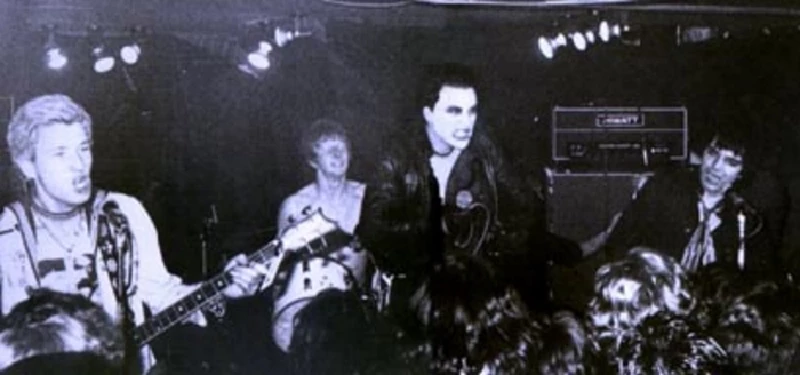
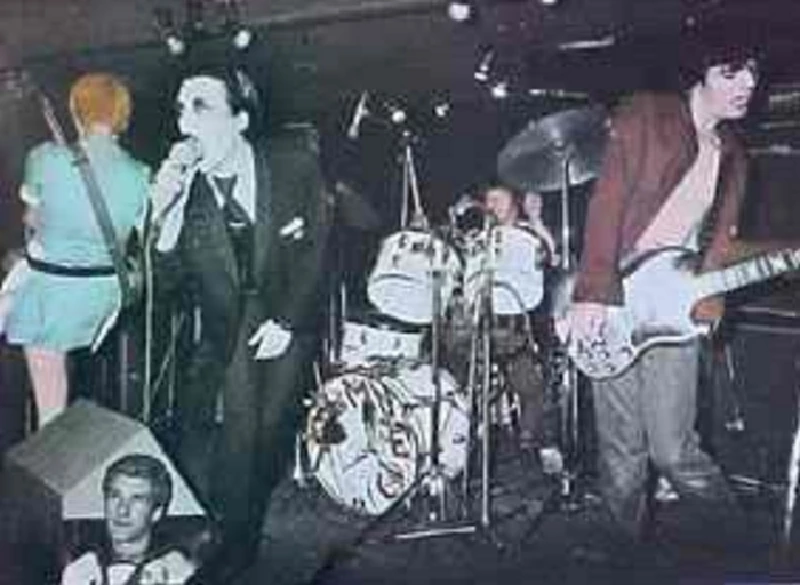
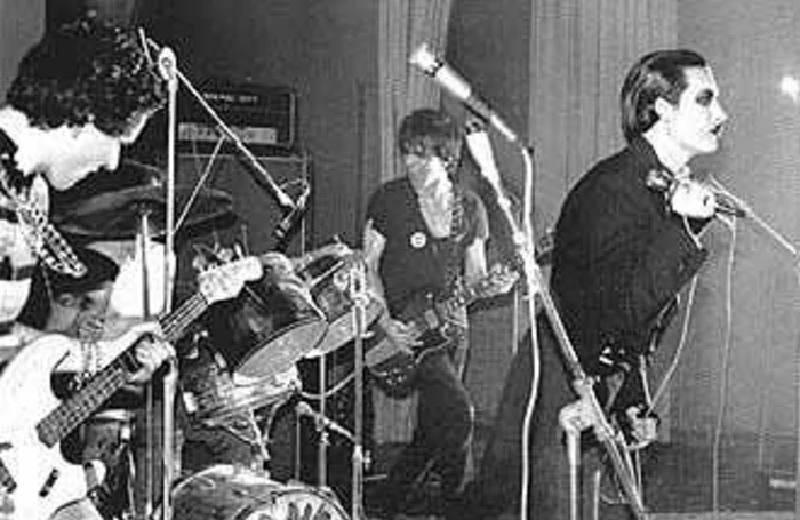
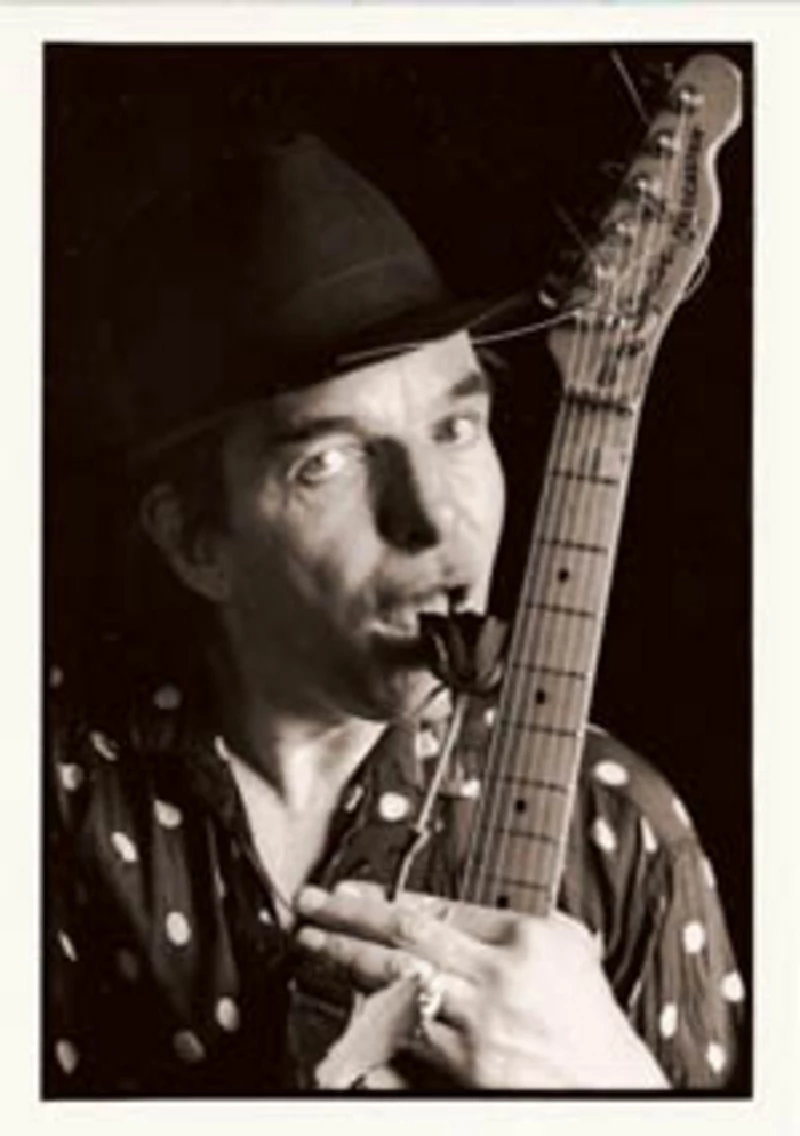
interviews |
|
Interview Part 3 (2007) |
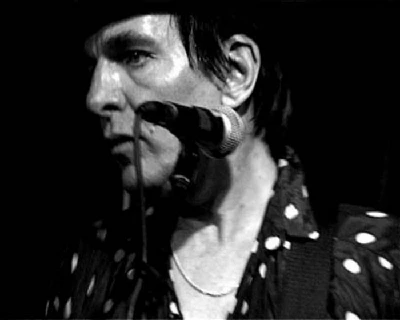
|
| In the third and final part of our interview with former Damned guitarist Brian James, he talks to John Clarkson about his new band the Brian James Gang and the recoding of their eponymous debut album |
| Interview Part 2 (2007) |
most viewed articles
current edition
Carl Ewens - David Bowie 1964 to 1982 On Track: Every Album, Every SongArmory Show - Interview with Richard Jobson
John McKay - Interview
Colin Blunstone - Thalia Hall, Chicago, 16/7/2025
Bathers - Photoscapes 1
Billie Eilish - O2 Arena, London, 10/7/2025
Loft - Interview
Visor Fest - Valencia, Spain, 26/9/2025...27/9/2025
Sir Tim Rice - Interview
Robert Forster - Interview
previous editions
Manic Street Preachers - (Gig of a Lifetime) Millennium Stadium, Cardiff, December 1999Heavenly - P.U.N.K. Girl EP
Beautiful South - Ten Songs That Made Me Love...
Oasis - Oasis, Earl's Court, London, 1995
Peter Perrett - In Dreams Begin Responsibilities Interview Part One
Boomtown Rats - Ten Songs That Made Me Love....
Coldplay - Wembley Arena. London, 16/8/2022
Prolapse - Interview
Trudie Myerscough-Harris - Interview
Pixies - Ten Songs That Made Me Love...
most viewed reviews
current edition
Davey Woodward - Mumbo in the JumboSick Man of Europe - The Sick Man of Europe
Lucy Spraggan - Other Sides of the Moon
Amy Macdonald - Is This What You've Been Waiting For?
Phew, Erika Kobayashi,, Dieter Moebius - Radium Girls
Suzanne Vega - Flying With Angels
Bush - I Beat Loneliness
Alice Cooper - The Revenge of Alice Cooper
Cynthia Erivo - I Forgive You
Blueboy - 2
Pennyblackmusic Regular Contributors
Adrian Janes
Amanda J. Window
Andrew Twambley
Anthony Dhanendran
Benjamin Howarth
Cila Warncke
Daniel Cressey
Darren Aston
Dastardly
Dave Goodwin
Denzil Watson
Dominic B. Simpson
Eoghan Lyng
Fiona Hutchings
Harry Sherriff
Helen Tipping
Jamie Rowland
John Clarkson
Julie Cruickshank
Kimberly Bright
Lisa Torem
Maarten Schiethart